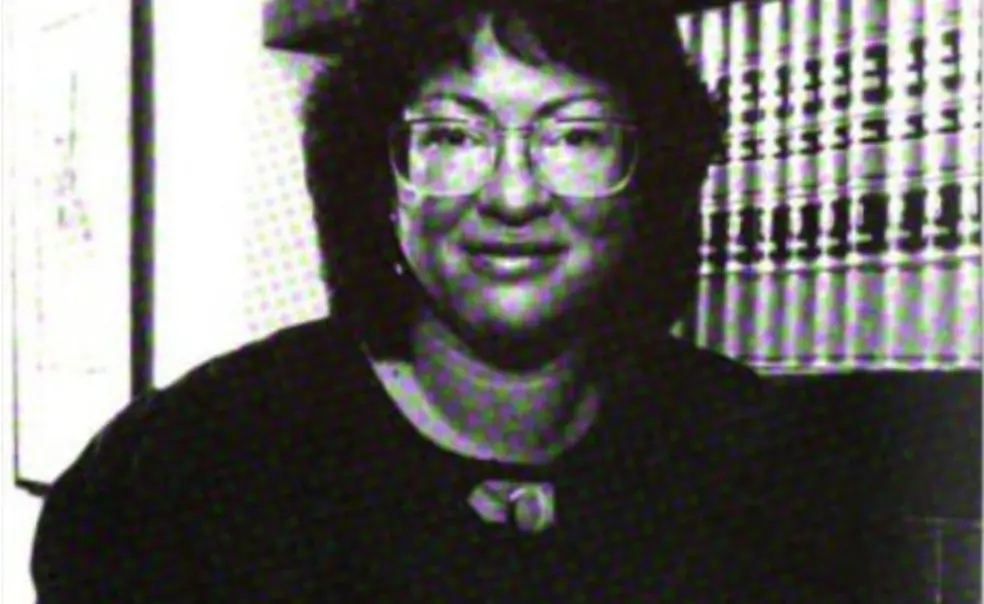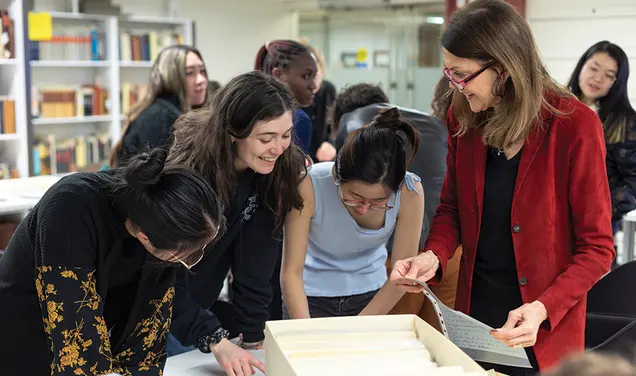Sonia Sotomayor ’76 Rescues America’s Pastime
Talk about Princeton in the nation’s service. On March 31st, Sonia Sotomayor ’76, a federal judge on the United States District Court in Manhattan, issued an injunction against the owners of major-league baseball teams, enjoining them from unilaterally imposing contract terms to govern the 1995 baseball season. Thanks to this ruling, the players ended their strike, the owners accepted the players’ offer to return to work, and “America’s pastime” is underway again, after a painful, 234-day hiatus.
Sotomayor’s commitment to community and public service stretches further than the national pastime. In an interview with Princeton Today this winter, Sotomayor credited Princeton with stimulating her interest in public service. “At Princeton…the size of the institution makes it possible to really get involved,” she said. “You’re paid attention to at Princeton, and you have a sense of having a positive impact.”
[Sotomayor, who has been inundated with requests for interviews since the baseball decision, said that as much as she loves Princeton, in fairness to the many other requests she has had for interviews, she would have to decline PAW’s request as well.]
Sotomayor, the Southern District of New York’s youngest judge (she is forty) and the first who is an American of Puerto Rican descent, grew up in a Bronx housing project and went to Catholic schools. Her parents were from Puerto Rico—her father, who spoke only Spanish, died when she was nine. Sotomayor has said her mother “had almost a fanatical emphasis on education.”
At Princeton, she majored in history and received nearly all A’s in her last two years. Her academic achievement was equaled by her efforts on behalf of minority students. She was a founder of the Latino Student Organization and sat on the Third World Center’s governing board. She also organized Latino students as volunteers at the Trenton Psychiatric Hospital to provide needed Spanish-speaking skills, and served on the student-faculty discipline committee. “Involvement in my community is a very important ingredient in my life,” she told Princeton Today.
In her senior year, Sotomayor was a co-winner (with classmate J. David Germany) of the M. Taylor Pyne Honor Prize, Princeton’s highest undergraduate award. At the award ceremony on Alumni Day, she spoke about minority students at Princeton, who she noted are diverse in their opinions, cultures, and experiences, but are united by the common bond of the university.
“We are attempting to exist distinctly within the rich Princeton tradition, without the tension of having our identities constantly challenged and without the frustration of isolation,” she said. “The challenge to both myself and to Princeton is to go beyond simple recognition. I hope today also marks the beginning of a new era for all of us—a new era in which Princeton’s traditions can be further enriched by being broadened to accommodate and harmonize with the beat of those who match to different drummers.”
After Princeton, came Yale Law School, where she edited the Yale Law Journal. According to the Washington Post, during Sotomayor’s third year, a partner at a large Washington, D.C., law firm asked her some discriminatory questions, and she filed a formal complaint. The firm subsequently issued an apology.
After law school, she worked for five years as an assistant district attorney in the office of Manhattan District Attorney Robert Morgenthau. In 1984, she joined Pavia & Harcourt, where she specialized in commercial litigation, counting among her clients Ferrari and Fendi. She was made a partner in 1988.
Sotomayor also continued her community activities with pro bono work. From 1980 to 1992, she served on the board of the Puerto Rican Legal Defense and Education Fund. She was appointed by the mayor as a founding member of the New York City Campaign Public Finance Board, which distributes public money for municipal election campaigns. She also sat on the board of the State of New York Mortgage Agency, which helps provide mortgage-insurance coverage to low-income housing and AIDS hospices.
U.S. Senator Daniel Patrick Moynihan recommended Sotomayor to President Bush for appointment to a judgeship on the Manhattan district court, and on October 2nd, 1992, she was sworn in. A week before the ceremony, Sotomayor told The New York Times what she expected to see on the bench: “95 percent of the cases before most judges are fairly mundane. The cases that shake the world don’t come along every day.”
Yet, when the fate of America’s game arrived in her courtroom, Sotomayor handled it with aplomb. In a typically down-to-earth opening remark, she said, “I hope that none of you assumed that my lack of knowledge of any of the intimate details of your dispute meant that I was not a baseball fan. You can’t grow up in the South Bronx without knowing about baseball.”
This was originally published in the May 10, 1995 issue of PAW.










No responses yet